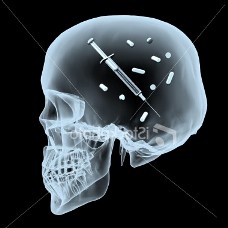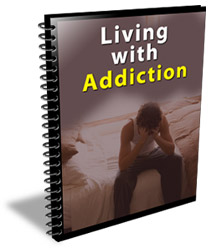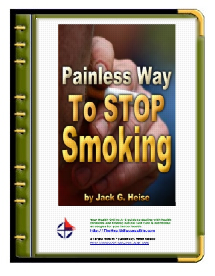|
What is addiction?
Addiction is a chronic relapsing brain disease. Brain imaging shows that addiction severely alters brain areas critical to decision-making, learning and memory, and behavior control, which may help to explain the compulsive and destructive behaviors of addiction. There are so many people in the world today that are faced with dealing with an addiction of some kind. There are many different kinds of addictions and it does not have to be something that you would expect. An addiction is something that someone must have and cannot control their want to have it on their own. Many who have addictions must seek help to cope with it and to fight off the pressures of dealing with it.
Signs & Symptoms The United Nations Office on Drugs and Crimes published a report that included these Stages of Addiction (which they see as a disease) with regard to drugs ( Source www.unodc.org/pdf/india/publications/DAIIM_Manual_TTK/23-26.pdf )
STAGES OF ADDICTION As in other diseases, the general progression of addiction can be traced. Symptoms which are mild in the early stages intensify as the disease progresses, though differences in terms of a few symptoms being more prominent and even absence of some may be noted between individuals. The general course of the disease is described below. Early Stage Increased Tolerance As tolerance to the drug increases, more and more of the drug is required to produce the desired effects. Initially, the drug abuser does not view this symptom seriously and simply increases the quantity of intake. As he functions fairly adequately in spite of increased use, neither he nor others around him view it as a matter of concern. Blackout This symptom appears only with alcohol and other depressant drugs. The user is unable to recollect events that took place while he was under the influence of alcohol or other such drugs. For example, under the influence, he would have functioned apparently ‘normally’, but the next day he may not remember whom he met, the conversations he’d had, how she drove back home or whether she had dinner or not. This inability to remember things makes the user feel confused while family members see it as lying. Pre-occupation with Drugs Drugs become the central point in his life so much so that his thoughts and activities revolve around it. In the midst of important work or even an exam, he finds himself thinking about how, when and where he can get his next supply of drugs. Avoiding References to Drugs He resists any efforts to discuss his drug use. Information about drug addiction in the mass media or even general statements during a conversation make him uncomfortable as he recognizes at this point of time that something is going wrong. Even casual references to drug/alcohol use can trigger his guilt related to abuse and he reacts with irritation and anger. He moves away from non-drug using friends or stays isolated to avoid direct or indirect references to his drug abuse. Family members recognize that any discussion about drugs creates a scene and they become very wary about even expressing their concern. Middle Stage Loss of Control He finds that he is now unable to reduce the quantity of drug intake. Due to the tolerance and dependence that he has developed, even if he tries, he is unable to stop with a small amount. While previously he restricted his drug use to certain times of the day or to particular situations, he finds that this is no longer possible. For instance, while previously he was able to restrict his use of drugs till his work was completed, he now finds himself using it even during working hours. Quite often, he tries to limit usage, but fails. The loss of control over drugs is complete and he no longer has a choice about whether he is going to take the drug or not he simply has to. Withdrawal symptoms set in even if he delays a single dose and he is forced to continue not out of choice but out of compulsion. Changes in Thought Patterns The changes in his personality lead to progressive deterioration in his lifestyle. There is a deep sense of insecurity and low self-worth that he tries to deal with in many ways. He may vainly try to present a larger than life image of himself. He becomes grandiose, boasts about his achievements or tries to impress others by spending extravagantly on gifts and parties. He tends to underestimate his problem and is overconfident about his ability to handle it. Many become sullen and withdrawn. Justifying Drug Use He tends to deny the problems related to his drug use. He may dismiss the issue lightly by saying that everybody uses drugs or that drug use is actually helping him perform better. He does not see himself as being responsible for his addiction. Instead, he blames people and situations around him. He may accuse his family of being too restrictive or lacking in affection, or may blame the stress related to his studies or work. Due to his denial, family members are unable to deal with it in a forthright manner. Aggressiveness and Other Mood Changes Angry outbursts in the form of abusive language or even violence can set in. The desperation to buy drugs can trigger off physical violence. Alcoholics are frequently violent under the influence of alcohol. Attempts at Abstinence The progression of the disease may lead to one or more crises in his life. In response to a crisis like an overdose incident, a serious medical problem, loss of job or a police arrest, he may attempt to give up drugs. Once the intensity of the crisis wears off, he tells himself that he can try drugs again. Sometimes, he changes the drug he uses. The narcotic drug abuser may try other painkillers or alcohol. This strategy too does not work. At this point in time, he does not want to go back to excessive use, but only intends to use it on and off. Yet, soon after he gives drugs a try — of whatever kind — he is back to obsessive use. CHRONIC STAGE Continuous Use Drug use becomes continuous, the need for a chemical ‘high’ is very strong and everything else fades into insignificance. The user may try cheaper drugs or a combination of drugs to experience that ‘high’. He no longer experiences any ‘euphoria’. He needs drugs simply to avoid the pain of withdrawal. With the alcoholic, binges may set in; he may drink continuously for a few days, stop because he is unable to continue, only to start all over again after a while. Ethical Breakdown Rules are broken, values forgotten and life goals given up. The drug-related damage alienates the user completely from others. His association is limited to drug abusers and peddlers, and he lives only for the next fix (the next intake). The family is by now bewildered and often gives up altogether. The addict may leave home and be on the streets. Physical and Mental Deterioration Indefinable fear, hallucinations, paranoia and suicidal thoughts may set in, adding to the complexity of the problem. It is clear that the disease (addiction) is progressive with symptoms and problems becoming more intense as it moves on. As with other diseases, the possibility of recovery is greater if intervention is initiated in the early stages.
Types of addiction Addiction to drugs is the thing that grabs people’s attention and most of the newspaper headlines because of the cost in the lives of the individuals and to society in general, there are may types of addictions. Addiction reaches beyond alcohol and drugs. Many people suffer from all sorts of different addictions. Gambling, eating, shopping, sex, internet, work, video games, even coffee and specific foodstuffs. Those behaviors may affect the person differently, but they can be just as devastating as substance dependence. Risk Factors: These factors increase the likelihood of your having an addiction. This is particularly relevant to a legal or an illegal drugs:
When to seek Medical Advice: Addiction is a chronic relapsing disorder, meaning you tend to fall back into old addictive behaviors, including drug use, even after treatment. The sooner you seek help, the greater your chances are for a long-term recovery. If you're initially reluctant to approach a doctor, help lines or hot lines may be a good place to start to learn about treatment. You can find these lines listed in the phone book or on the Internet. Because denial is often a characteristic of addiction, many people who are addicted to or who abuse drugs won't seek medical treatment on their own. Family members, friends or co-workers may need to persuade the user to undergo screening for drug addiction. Breaking a drug addiction may involve counseling, an outpatient treatment program or residential treatment.
Treatment/Therapy: Addiction if treated as a disease can follow certain well trodden paths on the road to recovery. While most addictions will follow similar paths the proven steps for drug addiction should be useful as a guide in most cases. Drug addiction treatment typically involves steps to help you withdraw from using the drug, followed by counseling and attending self-help groups to help you resist using the addictive drug again. Withdrawal therapy The goal of withdrawal therapy (detoxification) is for you to stop taking the addicting drug as quickly and safely as possible. Detoxification may involve gradually reducing the dose of the drug or temporarily substituting other substances, such as methadone, that have less severe side effects. For some people, it may be safe to undergo withdrawal therapy on an outpatient basis; others may require admission to a hospital or a residential treatment center. Withdrawal from different categories of drugs produces different side effects and requires different approaches. Central nervous system depressants. Minor side effects of withdrawal may include restlessness, anxiety, sleep problems and sweating. More serious signs and symptoms also could include hallucinations, whole-body tremors, seizures, and increased blood pressure, heart rate and body temperature. The most serious stage of withdrawal may include delirium, which is potentially life-threatening. Withdrawal therapy may involve gradually scaling back the amount of the drug. Central nervous system stimulants. Side effects of withdrawal typically include depression, fatigue, anxiety and intense cravings. In some cases, signs and symptoms may include suicidal thoughts and suicide attempts, paranoia and impaired contact with reality (acute psychosis). Treatment during withdrawal is usually limited to emotional support from your family, friends and doctor. Your doctor may recommend medications to treat paranoid psychosis or depression.
Opioids. Side effects of withdrawal of opioids, such as heroin, morphine, oxycodone or codeine, can range from relatively minor to severe. On the minor end, they may include runny nose, sweating, yawning, feeling anxiety and craving the drug. Severe reactions can include sleeplessness, depression, dilated pupils, rapid pulse, rapid breathing, high blood pressure, abdominal cramps, tremors, bone and muscle pain, vomiting, and diarrhea. Doctors may substitute a synthetic opiate, such as methadone, to reduce the craving for heroin and to gently ease people away from heroin. The most recently approved medication to ease withdrawal from opiates is buprenorphine (Subutex). Buprenorphine is a milder opioid that was approved in the United States to manage cravings in individuals who decide to stop using stronger opiates. This drug is the first narcotic medication used for the treatment of addiction that may be prescribed in a doctor's office rather than a treatment center. Continuing treatment After detoxification, therapies such as counseling, addiction treatment programs and self-help group meetings can help you stay sober.
Give yourself time. For most people, it takes about three months before significant improvement occurs with many major addictions, so don't give up on your treatment program too soon.
Diet change strategies: Vitamin & Nutrient Associations Nutrition support can be a huge help with Addictions but in most cases will not cure them. Even products that are as strong in their support for your body with detoxification and broad spectrum nutrition offer little that directly support the breaking of addictions. On the other hand nutrition plays a very important role in supporting you through the difficult times of trying to control an addiction. Think about how, when someone is sick, traditionally it is considered best to let them stay in bed, comfortable, with people to watch over them and foods that are suitable for their condition. This support does not cure their sickness but it provides and environment that gives the body its best chance of healing. This is what you do with a strong nutrition program. Give the body an environment that supports it in your attempt to shake off the addiction. One of the areas that can trigger addiction is lack of key nutrients, and one of the difficulties that often come from having an addiction is that you neglect the dietary needs to give you key nutritional factors. Whichever way it works we often find that people with addictions also have dietary deficiencies. This results in your body not functioning at optimum level, often weariness, irritability, inability to concentrate properly, lowered immune system and lowered metabolic. Let us be very clear, often the run down condition of people with addictions is not caused so much from their addiction itself as from the neglect of proper dietary needs. I’ll give you an article here that I’d like you to read this article on how our body absorbs nutrition as it is in simple language and shows how people can compromise their ability to absorb nutrients within a normal lifestyle. Imagine how much worse this problem is with addictions. Either read it now and click back to here or finish this article and I’ll give you the link again at the end. The article is nutrition Getting nutrition to your cells and allowing your body to rebuild is critical in getting well and often a huge factor in overcoming addictions. If people take active steps to deal with their addiction to cigarettes then they often stay off them. If on the other hand they believe that the nutritional program is all that is needed then they generally fall back into the habit. This is a major point, a high quality nutrition program is a huge support for people with addictions but it’s job is to give a supporting environment for you to work through the issues of your addiction and come free of it. Nutrition by itself is normally not enough to let you overcome the addiction.
More Resources available about addiction :
 Subscribe to “Your Health Success” free newsletter
*** GENERAL RELEASE AND ASSIGNMENT For good and valuable consideration, the receipt and legal sufficiency of which is hereby acknowledged, I ("I", "me", "my") hereby agree as follows: I understand that in submitting my material for publication I am granting the rights to reproduce this material on the internet or in other form and I have read the conditions above
============================================================ Back to Top of your health online addiction page
|




